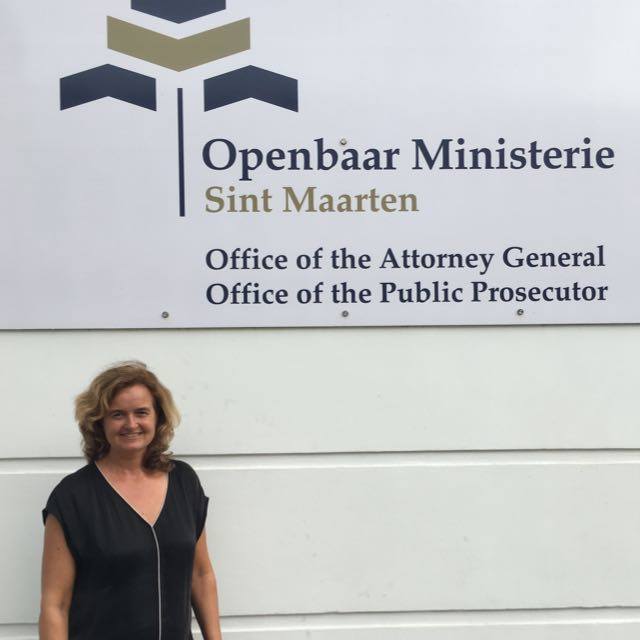The Public Prosecutor’s Office makes early release of prisoners public

PHILIPSBURG – Chief Public Prosecutor Mirjam Mol intends to provide explanations on the Public Prosecutor’s website whenever a prisoner is allowed to leave Pointe Blanche prison early. “Why this prisoner and not another? I want to show the public how we come to a decision, what considerations are taken.”
Early release is, in any case, undesirable according to the Chief Public Prosecutor. “If someone is convicted, you want him to serve his sentence. In many cases this is not possible on St. Maarten. The shortage of cells forces prisoners to be released earlier, to make way for newly convicted persons. The question then is: who will you let go? Who not? And why?”
A prisoner who has shot a firearm or has threatened with it is not released early if it is up to the Chief Prosecutor. The choice is rather for someone who has committed a burglary. “But that decision is not obvious,” says Mol. “There are a dozen repeat offenders on St. Maarten who have more than once spent time in prison, so-called revolving door criminals. “Although they commit mostly minor offenses, often theft, this group causes a lot of inconveniences to the general public. St. Maarten is a small society; a series of burglaries has a big impact here.”
Some of the frequent offenders are addicted. Marijuana, crack cocaine and alcohol are the most commonly used addictive drugs on St. Maarten. The only rehab clinic on the island, Turning Point Foundation, whose buildings suffered major damage from Hurricane Irma, does not have facilities for addicted detainees. “On St. Maarten, the entire law enforcement chain has to contend with scarcity: scarcity of financial resources, expertise, and a large shortage of personnel. The police force lacks personnel and the prison system has not enough cells available to detain people convicted of a criminal offense. Counseling and treatment possibilities are also insufficient, which means that there is a high possibility of a repeat of criminal behavior and we often see former prisoners return to the public prosecutor’s office.”
It is a paradoxical situation in which there is no prospect of a solution, says Mol. “I say it the way it is: security on the island does not benefit from the early release of prisoners. But we are now at the point that the maximum detention capacity has been reached and we cannot help but let people go. I want to be very transparent about how we come to a certain choice.”
The Public Prosecution Office also wants to hear the opinion of the public. What do the people of St. Maarten think should be done? Who is responsible? How can we work together on a solution? Mol thinks it is time for a broad social discussion. “In the run-up to that discussion, I want to show what the Public Prosecution Service is facing and what the obstacles are. Ultimately it is about our safety. This affects us all.”
###
Related links:
The Netherlands releases TBR convicted prisoner, sends him back to St. Maarten
‘Government needs to ensure that forensic care is available within weeks’
Forensic Care Taskforce Letter to Justice Minister 20-02-2020
Press Release Forensic Care Taskforce Formed 20-02-2020


























